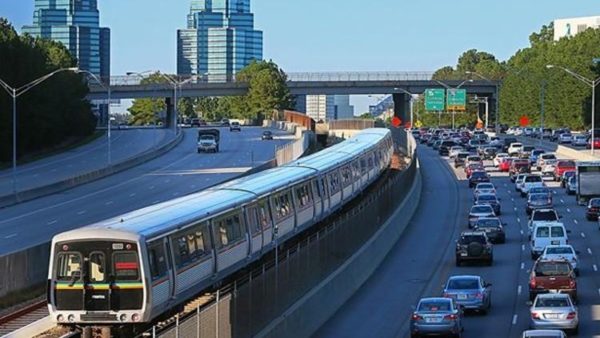 Mobility as a Service: An American Perspective.
Mobility as a Service: An American Perspective.
An Interview with Shannon Fain
What is your background and how did you come to work in transport? I majored in Transportation Engineering and City Planning in college (undergraduate degree and masters) as I have always loved urban areas – not just large cities, but also small villages, roadway towns, etc. I’ve now been in the industry for over 17 years and have worked on everything from transit studies, ped/bike studies, community revitalisation efforts to transport related software development, large scale research projects and the latest in Big Data technology.
What interests you about MaaS? I really do believe that MaaS is the future of transport. As services and technology grow, it is making less and less sense to pay tens of thousands of dollars for something that just sits idly in your driveway for 22+ hours a day. Wouldn’t you rather only pay for transport when you need it? In most cases it is cheaper as well. My wife and I have recently gone completely car-less here in Atlanta and we are loving it… and we are saving over $1300 a month!
Once you throw in the health benefits of realising “hey, do I want to pay X amount for this transport option or maybe I should just walk it or bike it? It’s not that far, I can do it!” People are much more likely to make decisions like this when they haven’t already prepaid for their own personal vehicle.
What has impressed you about MaaS Scotland? How active and involved it is, both internally with its members and externally with the transport industry as a whole. I cannot remember the last post I have seen on LinkedIn either from MaaS Scotland directly or from a member that I have not clicked on. And every single article has been informative and interesting. In my opinion, a good deal of the world is “waiting to see” how MaaS develops, whereas Scotland, based on what I see from MaaS Scotland, seems to be choosing a more proactive approach, where they are guiding it from the beginning.
It also doesn’t hurt any that I visited Scotland last year and absolutely fell in love with it. I have never seen anywhere remotely on the same level when it comes the rare combo of stunning natural beauty and amazing historical resources. We loved it so much we are making another visit this May and may even look into relocating there one day.
What does the MaaS scene look like in the US/Atlanta? MaaS is still very unknown in the US. While there are organisations and some conferences and events, I would wager that 75% of the transport engineers and city planners in the US do not even know what MaaS stands for… however, it is growing. And I think a lot of people here have done work in the area, they just didn’t know that what they were doing is called “MaaS”. Also, MaaS is almost totally a personal approach in the US thus far, there is very little to no government guidance or structure.
In Atlanta, electric scooters were introduced on a wide scale a few months ago and their impact has shocked everyone. They are all over the place. You will walk down one block and see 10-15 of them parked, ready to be ridden. This has led to a lot of backlash as people view them as littering the sidewalks, and there have been a lot of issues with pedestrian safety. Many cities, including Atlanta, are already addressing these concerns.
I think overall in the US, the biggest hurdle will to overcome the deep seeded idea that personal car ownership = freedom (in terms of getting around). If you work hard, and are successful, you buy a car. If you give up your privately owned car, you give up your freedom to get around. To get more and more people to see the many benefits of MaaS as compared to this entrenched ideology, will require a lot education, word of mouth, supporting data etc. But I do think things are moving in the right direction as a lot of younger Americans value life events/experiences over possessing things.
To read more about Shannon or to get in touch, visit his LinkedIn page here.


